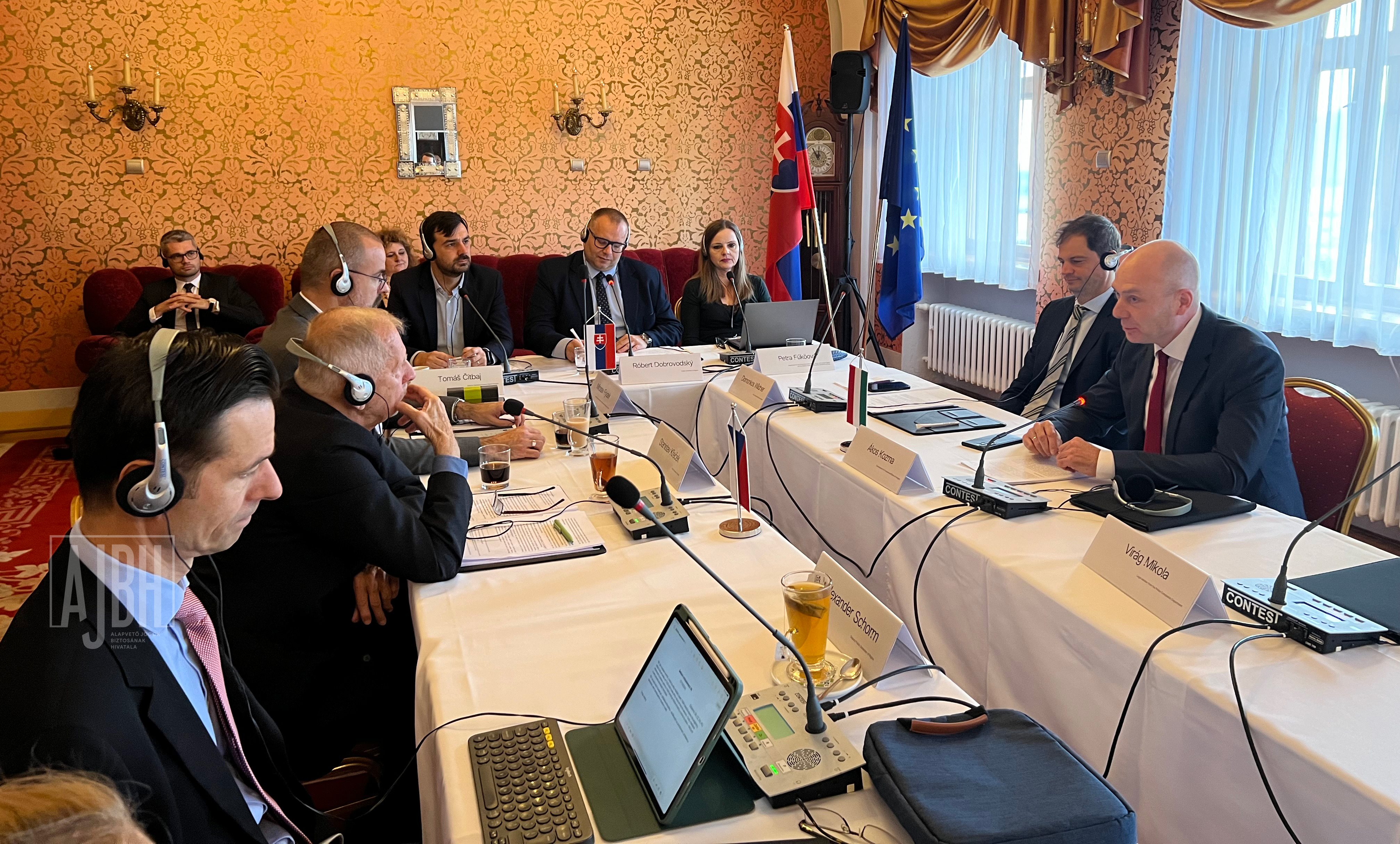The Commissioner for Fundamental Rights of Hungary Participated in the V4 Ombudsman Summit - AJBH-EN
 Curriculum Vitae of Dr. Ernő KÁLLAI, Deputy-Commissioner for Fundamental Rights, responsible for the Rights of Nationalities
Curriculum Vitae of Dr. Ernő KÁLLAI, Deputy-Commissioner for Fundamental Rights, responsible for the Rights of Nationalities
Studies
2008 Ph.D. degree in legal theory and legal sociology at the Deák Ferenc Doctoral School of Law and Political Sciences, University of Miskolc
1997 - 2002 Eötvös Loránd University Faculty of Law and Political Sciences - lawyer
1994 - 1998 Eötvös Loránd University Faculty of Arts - secondary school teacher of history
1990 - 1994 Eszterházy Károly Teacher Training College - teacher specialised in history and music
1994 - 1995 Journalism School - certified journalist
1995 Hungarian Radio - news editor and radio journalist
Employment
2010 Eszterházy Károly College, Faculty of Teacher Training and Knowledge Technology - head of department
2009 University of Debrecen, Faculty of Law and Political Sciences, Department of Constitutional Law - guest professor
2008 Corvinus University of Budapest, Post-graduate specialist training programme in equality and minority issues - mentor and guest professor
2007 Parliamentary Commissioner for National and Ethnic Minority Rights
2002 - 2010 Apor Vilmos Catholic College, Institute of Romology and Applied Social Sciences - head of institute, college professor
1998 Hungarian Academy of Sciences Ethnic and National Minority Research Institute - Head of research group on Romology
1999 - 2002 Miskolc University, Department of Sociology, professor
1996 - 1998 member of staff of the Roma Civil Rights Foundation
1988 - 1997 teacher at various educational institutions
Scholarships
2000 - 2002 Civic Education Project
1997 - 1999 Soros Foundation
1998 - 2002 European Roma Rights Centre
1997 - 1999 Roma Civil Rights Foundation, „Invisible College" for Roma students
Public and professional activities
2007 - Member of the Equal Treatment Professional Advisory Board
2002- 2005 Member of the board of trustees of the Autonomy Foundation
1998- 2004 Member of the board of trustees of the Gandhi Public Foundation
Membership of professional organisations
Hungarian Sociological Society - member of the Presidential Board
Hungarian Academy of Science - member of the Public Body
Hungarian Association of Lawyers
Hungarian Society of Political Sciences
Hungarian Ethnographical Society
Awards
2006 Award for Minorities
2005 honoured by the National Gypsy Self-Government for excellence in research
Main areas of research using empirical data survey in the past years
- Emergence of cultural rights of the minority communities'
- The new paradigms of handling of ethnic data
- Roma entrepreneurs in Hungary
- Research on local Gypsy minority self-governments
- The past and present of Gypsy musicians
- The social history of the Hungarian Roma in the 20th century
- Equal opportunities of Roma in Hungary. Self-governance, positive discrimination, and the role of education in improving the situation of the Roma - theoretical and practical models
- The theoretical models and practice in Hungary of local Gypsy minority self-governments
- The cultural autonomy of minorities
null The Commissioner for Fundamental Rights of Hungary Participated in the V4 Ombudsman Summit
Between 16-18 October 2024, the town of Smolenice, Slovakia, hosted the Meeting of the Ombudspersons of the Visegrád Four Group, organized by the Public Defender of Rights in of Slovakia.

The panel discussions at the conference focused on social rights, housing, the relationship between landowners and public service providers, the experiences of the Covid-19 pandemic, and current challenges related to the implementation of the Optional Protocol to the Convention against Torture and Other Cruel, Inhuman, or Degrading Treatment or Punishment (OPCAT).
During the panel discussions, the Commissioner for Fundamental Rights of Hungary briefed his V4 colleagues on the recent expansion of his mandate. He presented investigative findings related to the topics discussed, the conclusions of relevant reports, and the recommendations outlined in them.
Since 2004, the Hungarian, Slovak, Czech, and Polish ombudsmen have annually informed their V4 partners about the challenges encountered, achievements reached, and practices applied to address current human rights issues in their work over the past period.